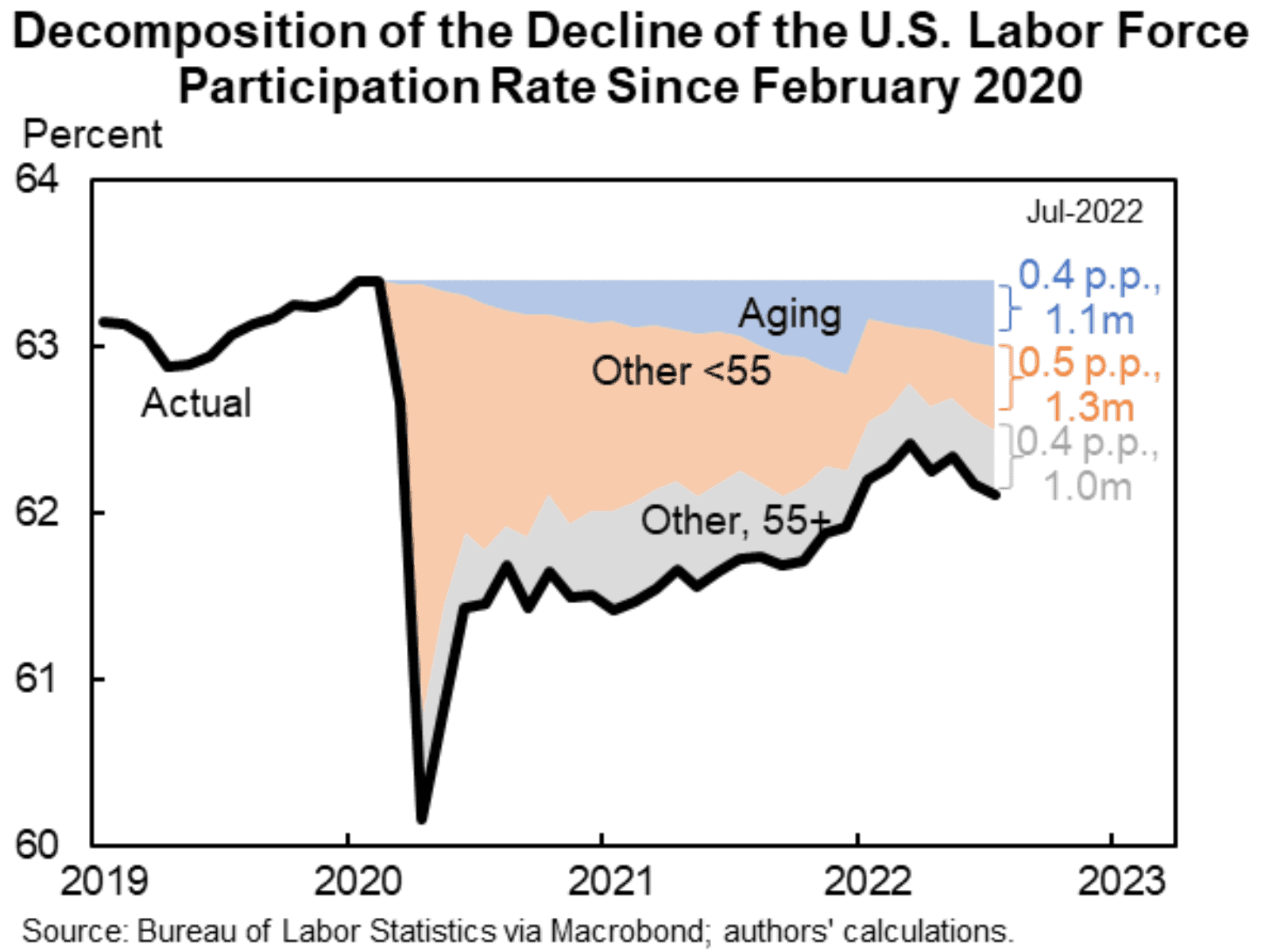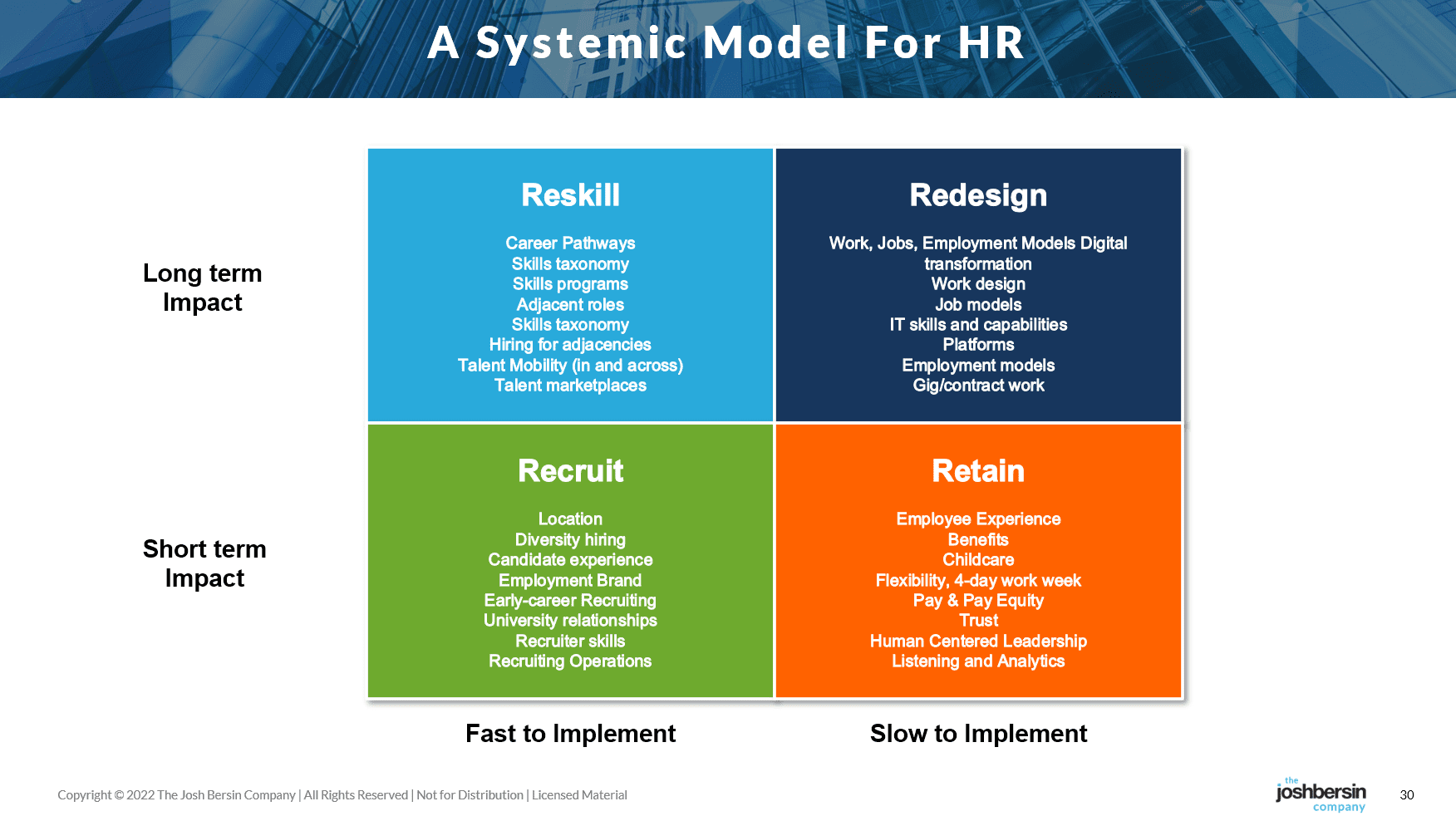The Hot Labor Market Has Almost Become A Crisis
Unbelievable. After four months of worries about a recession and a steady increase in interest rates, today the BLS reported that 528,000 jobs were created and the unemployment rate dropped to 3.5%. This is the lowest it has been since 1969, a year when I was in middle school.
And at the same time more and more jobs are being created, the GDP itself is slowing. What does this mean? Well, economists keep getting it wrong – it’s actually quite simple. The economy is shifting from goods to services, with an ever-increasing need for people.
As I discuss in the video below, we’ve automated many things in the business world, but technology never stops. The whole idea that a computer or AI system will “replace people” is silly. As soon as you build it something else comes along, so if you don’t have people to monitor it, evolve it, and adapt it, the technology simply becomes less valuable.
This is why companies like Google, Apple, Amazon, and Microsoft keep hiring. Technology itself is a people-centric business, and now that we can work from anywhere, the talent model for every company is global.
Why do I say this is a crisis? Because, quite simply, we cannot “manufacture more people” in a flash. We can solve the global supply chain problem by building a factory, buying a ship, or scaling up a distribution center. People don’t work that way. We need to educate them, train them, and coach them to perform at work. And as all the data now shows, when you “push” people too hard, they just quit, check out, or change careers.
I won’t repeat all the research we’ve been discussing, but many studies now prove that almost a third of the workforce will change employers this year and more than 40% of these job-hoppers will change industry. So regardless of these layoffs, you’re seeing in over-inflated tech companies, virtually every company is struggling to hire, retain, and grow their people.
There are lots of underlying causes for this: the low fertility rate, the early retirement of baby boomers, and the frustratingly difficult work experience many people have in retail, transportation, hospitality, and other industries. And of course, people feel underpaid when inflation goes up, and most employees feel overworked. (81% feel they are burned out.)
 |
My point is not to repeat what you probably already know, but rather to tell you that this problem is not going away. This shift to “service-centric” industries is a big and long-lasting effect, and it drives the message that every company, regardless of industry or size, is now in the people and talent business.
Next week we are launching a fascinating new look at the corporate training industry and you’ll see how much it is impacted by this issue, and in September we launch our Global Workforce Intelligence research and you’ll see all this data in detail.
The big message for CEOs and CHROs, however, is that you have to think about your company differently. No longer can you just “recruit” your way out of this problem. We need what we call “systemic HR” strategies and totally integrated HR operating models that bring together the four R’s: Recruit, Retain, Reskill, and Redesign, all in one integrated way.
We’ll be explaining this more in the coming months, but it’s now clear from all our research that you have to do these things in a new and innovative way. That’s the only way to deal with this existential shortage of labor.
 |
The only real solution, regardless of the direction of the economy, is to treat people as an asset. As I describe it in my book, it’s time to “make your company Irresistible,” and all that this implies.
 Every company we talk with is now figuring out how to do this, and ultimately this is the solution to the crisis. Stay tuned for more.
Every company we talk with is now figuring out how to do this, and ultimately this is the solution to the crisis. Stay tuned for more.
Additional Resources
Workplace Mental Health Is Now A Business Strategy
Irresistible by Design: The Winning Strategy For Today
How Work Design And Job Design Are Holding Companies Back
Unleashing Human Potential: The Real Secret To Business Success
